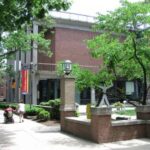 From Heidi Reed, Massachusetts Commission for the Deaf & Hard of Hearing (MCDHH):
From Heidi Reed, Massachusetts Commission for the Deaf & Hard of Hearing (MCDHH):
As we know, the mission of the Massachusetts Commission for the Deaf & Hard of Hearing (MCDHH) is committed to providing accessible communication, education and advocacy to consumers and private and public entities to that programs, services and opportunities are fully accessible to persons throughout Massachusetts who are Deaf and Hard of Hearing. The Governor’s House 1 Budget (H.1) was announced this week and funds MCDHH to continue our mission for FY18 as summarized below.
H.1 line item 4125-0100 allocates $5.6M for MCDHH. This figure is a $243K (5%) increase over FY17 estimated spending, and will fund MCDHH at a level equal to the FY17 GAA. (General Appropriations Act).
H.1 Snapshot:
• Level support for Referral, Case Management and Social Services, and Communication Access Technology & Training Services. These MCDHH programs provide interpreters and CART services for more than 30,000 requests, provide more than 1,000 families with support for navigating state services, and train state agencies, elderly services, police, and emergency responders on the needs of the Deaf and Hard of Hearing communities.
• Level support for Deaf and Hard of Hearing Independent Living Services (DHILS). In FY16, DHILS delivered over 23,000 service hours by providing information and referrals, peer mentoring, advocacy and skills training and a variety of independent living skills.
• Provides Assistive Technology (AT) funding which serves as a last resort for highly vulnerable and elderly constituents who primarily request hearing aids in order to manage progressive and permanent hearing loss. Funding will support approximately 54-55 elderly constituents.
• Supports collective bargaining and step increases.
• Includes MCDHH cost savings from reducing $76K in renegotiated office leases and from 9C cuts of $200K during FY17.
MCDHH will continue to be authorized to have revenue from interpreter fees. Our revenue funds are reinvested for communication access.
4125-0122 Chargeback revenue, capped at $250,000.
4125-0104 Interpreter services Revolving/Trust fund revenue $350,000
We at MCDHH look forward to continued collaboration and partnerships with the Baker administration, the Legislature, and our constituents in our strong commitment to improving accessibility and quality of services for Deaf and Hard of Hearing adults and children throughout the Commonwealth.
Thank you for your dedicated service to the Commonwealth through partnership with MCDHH.
Heidi L. Reed
Commissioner
MA Commission f/t Deaf and Hard of Hearing
600 Washington Street
Boston, MA 02111
Email: Heidi.Reed@state.ma.us
Voice: 617-740-1611
TTY: 617-740-1711
Fax: 617-740-1810
VP 617-326-7546
 Reveal, Don’t Conceal [Link no longer available, October, 202o] is a 10-step tool for managing hearing loss at work, created by Holly Cohen for the Workplace Issue of Hearing Health, an online publication of the Hearing Health Foundation in New York City.
Reveal, Don’t Conceal [Link no longer available, October, 202o] is a 10-step tool for managing hearing loss at work, created by Holly Cohen for the Workplace Issue of Hearing Health, an online publication of the Hearing Health Foundation in New York City.



 Tuesday night, March 21, 2017 at 7 PM at the Plymouth Public Library
Tuesday night, March 21, 2017 at 7 PM at the Plymouth Public Library



 This month, the webmaster of HLAA Boston Chapter’s website will step aside for a new volunteer administrator.
This month, the webmaster of HLAA Boston Chapter’s website will step aside for a new volunteer administrator.
